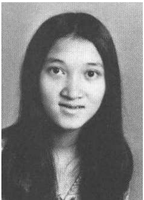
Friends call Dzung Ngoc Tu a forgotten victim. The 25-year-old graduate student from Bethesda was one of eight women that Michael Bruce Ross confessed to killing in Connecticut and New York in the 1980s. He told investigators that he strangled Tu in 1981 on the Cornell University campus, where both were studying agriculture.
After Ross's arrest in 1984 in one slaying, he admitted that he killed Tu and the other women and that Tu was his first victim. Although he was not prosecuted in Tu's death, he was convicted of murder in 1987 in four other cases. And after years of legal wrangling, he is scheduled to be executed Monday in Connecticut.
"She was the one about which little was known," said her older brother Lan Tu, 50, who lives in the Washington area. "I'd like people to know that she lived, and what kind of person she was -- smart, very hardworking and full of kindness."
Ross, 45, a Connecticut native, has said he wants to be put to death. His legal appeals have been mandatory in a death penalty case, and as of last night he had eschewed further, voluntary appeals. His would be the first execution in New England since 1960.
Under a death warrant issued in October, the state was to have until the end of tomorrow to carry out the lethal injection. If Ross is not executed by then, the state will have to return to court and ask a judge to set a new date.
Yesterday, the New York-based U.S. Court of Appeals for the 2nd Circuit lifted a stay of execution that was granted Wednesday by a federal judge in Connecticut. The appeals court ordered him put to death at 12:01 a.m. tomorrow.
The U.S. Supreme Court, acting on a motion by the Connecticut attorney general, ordered that the execution take place at 2:01 a.m. today. But state officials delayed the lethal injection until Monday morning to address a possible conflict of interest with Ross's attorney, T.R. Paulding, according to the Associated Press.
Last night, Ross's father, Dan Ross, unsuccessfully sought a U.S. Supreme Court stay of execution, contending that his son was not mentally competent to make the decision to forgo further appeals.
The scheduled execution has aggravated the years of anguish endured by Lan Tu and his parents, who moved to Bethesda from Vietnam in 1969. Lan Tu said his family learned only last week that Ross long ago confessed to killing Dzung Tu. He said the family believed for years that the slaying was a mystery.
"When I informed my parents, it was like a bolt of lightning," said Tu, adding that his mother is in poor health and that she did not want to talk publicly about the case. "We had not heard anything about it for so many years."
Cornell declined to comment yesterday. But earlier this week, the university gave the New York Times copies of a campus police investigator's typed notes showing that the investigator contacted the Tu family about Ross in 1987.
In 1987, when Ross confessed to a psychiatrist that he killed Tu, he was on trial for killing four other women, according to Michael Malchik, a former Connecticut detective who was instrumental in solving the cases. Ross eventually confessed to the police and publicly in the news media that he killed Tu and the other women.
Besides being sentenced to lethal injection in four slayings, he was sentenced to prison in one other killing. Because he was given multiple death sentences, prosecutors decided not to put him on trial in the other killings, including Tu's.
Malchik said yesterday that he assumed the Tu family knew that Ross had admitted to killing Dzung Tu. "There seemed to be some confusion about whether they were notified or not," Malchik said. "I thought the police in New York were going to handle it. I felt badly, but it wasn't up to me to notify them."
Dzung Tu's former roommate at Vassar College, where Tu received her undergraduate degree, said that she was aware of Ross's confession about Tu and that she possibly heard about it from a TV news report. She said she thought that police, prosecutors and reporters gave short shrift to her friend's death, focusing their attention on the other killings.
"Dzung is known as the forgotten victim," said Victoria Balfour, 50, now a freelance writer living in New York. Balfour described her friend as 5 feet tall, 95 pounds and "so polite." Balfour said Tu, who came to the United States when she was 13, was like a little sister to several friends and brought out the "mothering instinct" in them.
"She wanted to help the world. She was full of gentleness," Lan Tu said. "I can still remember her looking up at me with all the trust in the world."
For her parents, "It was very traumatic. . . . A part of them died," he said. "The damage has never really healed."
Tu was reported missing May 14, 1981. Three days later, her body was found. Ross told investigators that he raped and killed Tu on campus, then pushed her body into a lake. Investigators said that her body had plunged over a waterfall and that it was found in a gorge.
Tu said he planned to stand outside Osborn Correctional Institution in Somers, Conn., for the execution. "I realized there's still one thing I can do for my little sister," he said. "And that's see this thing to the end."
By Allison Klein
Washington Post Staff Writer
Saturday, January 29, 2005; Page B01
http://www.washingtonpost.com/wp-dyn/articles/A45702-2005Jan28.html

